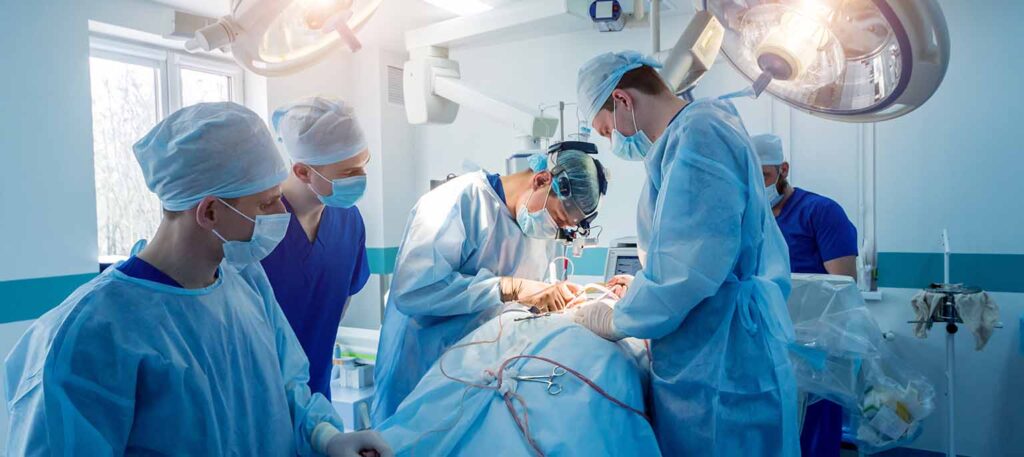Fertility Surgery
Home > Fertility Surgery
Traetments Offered
Infertility Evaluation
Infertility Evaluation
Laparoscopy
Hysterocopy
Fertility Surgery

Fertility Surgery – An Overview
Infertility in both men and women could be a result of various factors. Some could be congenital, and some could have developed over time. Therefore, it is best to get a fertility evaluation check if you cannot conceive within a year of unprotected regular sexual activity.
A fertility surgery helps you to fight the underlying cause of infertility that is preventing you from conception. Any structural deformation or damage hindering the process of pregnancy can be treated through fertility surgery.
Both males and females can undergo fertility surgery. In males, fertility surgery is used to treat conditions such as vasectomy/vaso-vasal anastomosis and varicoceles. Whereas, in females, conditions like fibroids, endometriosis, ovarian drilling and adhesiolysis are treated via fertility surgery.
The most common types of methods adapted for fertility surgery are Laparoscopy and Hysteroscopy. Both techniques are advanced practices involving a minor surgery with small incisions made to the body.
Conditions treated by Fertility Surgery in Females
Some of the infertility problems in women which could be resolved using fertility surgery are listed below:
- Endometriosis: In this condition, the inner lining of the uterus develops elsewhere (tube/ovary) in the body that makes it difficult for women to get pregnant. Laparoscopy helps to remove all the abnormal tissues from the pelvis, whereas hysteroscopy could entirely remove the uterus from your body.
- Fallopian Tube Blockage: Obstruction in the fallopian tubes prevents the sperm from meeting the egg because of blockage . Surgeries like Tubal Reanastomosis, Salpingectomy, Salpingostomy, Fimbrioplasty or Tubal Cannulation are suggested in such cases.
- Uterine Fibroids: Lumps that develop in the uterus causing severe cramping and heavy bleeding ,is called Uterine Fibroids. The best treatments for treating uterine fibroids are Myomectomy, Myolysis and Uterine Artery Embolization.
- Uterine Polyps: The endometrial lining of the uterus sometimes experiences an overgrowth of cells, resulting in a condition called Uterine Polyps. Polypectomy is usually done for treating this condition of the womb.
- Pelvic Adhesions: Some bands of scar tissues are formed after undergoing surgery in the pelvic area. Laparoscopy is most apt for treating such conditions.
- Polycystic Ovary Syndrome (PCOS): Caused due to hormonal imbalance in the reproductive years, PCOS is a common condition affecting the ovulation cycle in young females. If you opt for surgery, then Laparoscopic Ovarian Drilling is the solution.
Conditions treated by Fertility Surgery in Males
Some of the infertility problems in men which could be resolved using a fertility surgery are listed below:
- Vasectomy Reversal:
- A condition where the vas deferens get de-linked. By making a small incision in the scrotal skin, this condition could be reversed and reconnect the vas deferens to enable the flow of sperm to mix with the semen during ejaculation.
- Varicocelectomy:
- A condition where veins in the scrotum are abnormally enlarged, causing infertility in men. Surgery would remove the unusually enlarged veins to establish a regular blood flow to the genitals.


